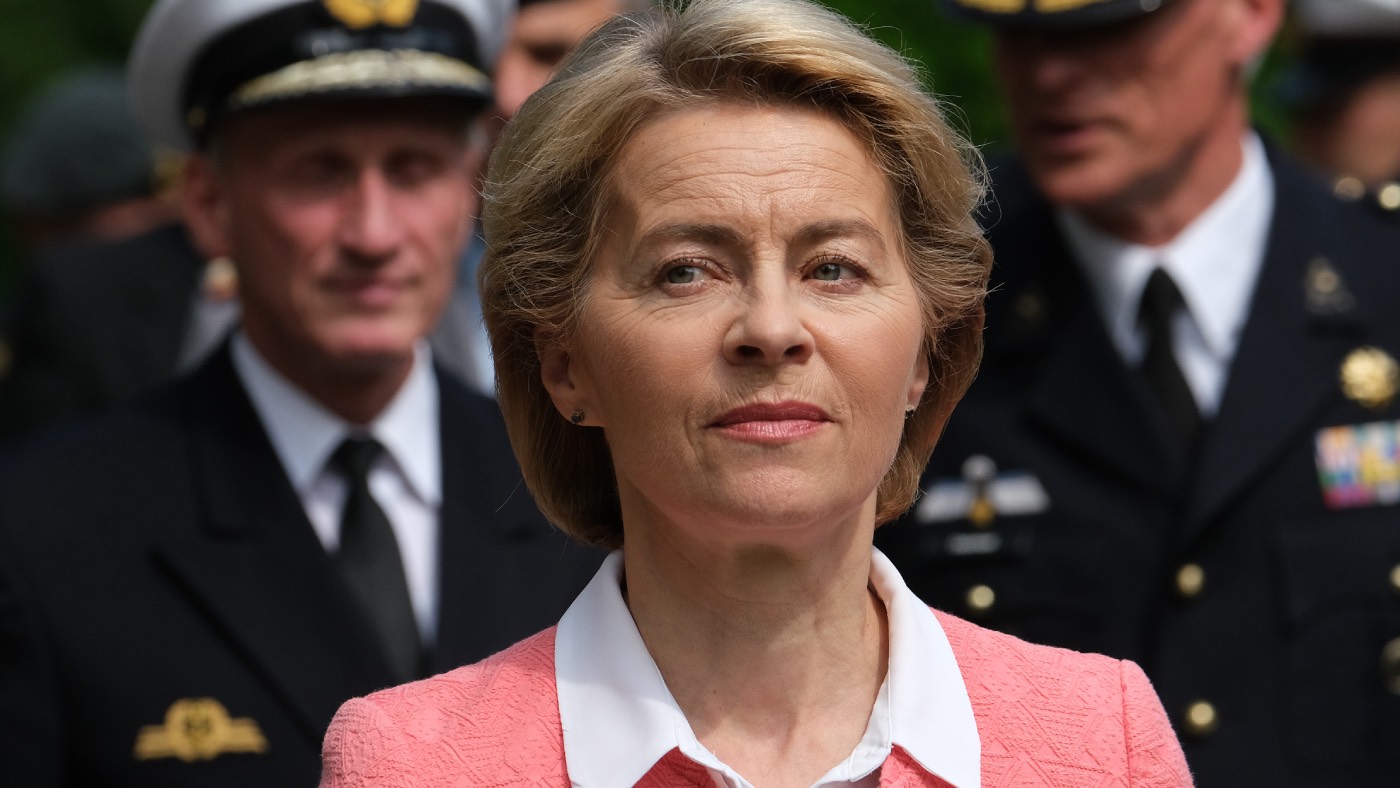Ursula von der Leyen: who is she and what does she think of Brexit?
German minister elected EU Commission president by just nine votes

A free daily email with the biggest news stories of the day – and the best features from TheWeek.com
You are now subscribed
Your newsletter sign-up was successful
German Defence Minister Ursula von der Leyen has been elected president of the EU Commission by just nine votes in a secret ballot of ministers of the European Parliament.
Her selection by European Union leaders as the sole candidate for the top job proved unpopular among pro-Brexit MEPs and she was confirmed by a margin of 383 votes to 327 - “the narrowest backing ever received by a commission president since parliament was given the power to reject nominees under the 2008 Lisbon Treaty”, according to the Financial Times.
Von der Leyen will succeed Jean-Claude Juncker on 1 November to become the first female president of the EU Commission, which controls the drafting and enforcement of EU laws and rules, with the power to impose fines on member states if necessary.
The Week
Escape your echo chamber. Get the facts behind the news, plus analysis from multiple perspectives.

Sign up for The Week's Free Newsletters
From our morning news briefing to a weekly Good News Newsletter, get the best of The Week delivered directly to your inbox.
From our morning news briefing to a weekly Good News Newsletter, get the best of The Week delivered directly to your inbox.
“The trust you placed in me is confidence you placed in Europe,” she said in a speech immediately after the vote. “Your confidence in a united and strong Europe, from east to west, from south to north.”
The Times reports that the 60-year-old, who has seven children, grew up in “Brussels as the daughter of a high commission official” who became a prominent member of the German party to which she now belongs, the Christian Democrats (CDU).
As a minister, von der Leyen has faced criticisms in her home country over equipment shortages in the armed forces “and what some consider to be her aloof management style”, says the BBC.
In her future role as EU Commission president, she has “promised to push for the EU to play a bigger role in social welfare, to tackle poverty, and has stressed that she would stand up for women's rights”, the broadcaster continues.
A free daily email with the biggest news stories of the day – and the best features from TheWeek.com
Her appointment will also see her take a central role in Brexit negotiations with the UK - much to the dismay of pro-Brexit observers and MEPs.
Brexit Party MEP Annunziata Rees-Mogg, sister of Tory MP Jacob Rees-Mogg, has dismissed the vote result as a “stitch-up”.
Meanwhile, Brexit Party founder Nigel Farage took to Twitter to claim that von der Leyen has “no legitimacy”.
Speaking to Sky News, he said: “I voted against her, but as a Brexiteer, I'm very pleased she's won. She's the pin-up girl now for the Eurosceptic movement, for the Brexit movement.
“If we had a second referendum, she would be on every single leaflet of the Leave campaign.”
This is by no means the first time that Farage has lashed out at von der Leyen. The pair bickered in the European Parliament earlier this week after the German politician told MEPs that she would allow another extension to Brexit if there were “good reasons” to do so.
To jeers from Brexiteers, she said that “we regret” but “respect” the UK’s decision to quit the bloc, and reiterated the EU position that the withdrawal agreement as it stands “provides certainty where Brexit provides uncertainty” on citizens’ rights and on peace and security in Ireland.
Describing von der Leyen as a “fanatic for building a European army”, Farage responded: “You just made Brexit a lot more popular in the United Kingdom. Thank God we’re leaving.”
She then hit back by saying that while she hoped a future relationship with Britain would remain close after Brexit, “I think, Mr Farage, we can probably do without what you have got to say here”.